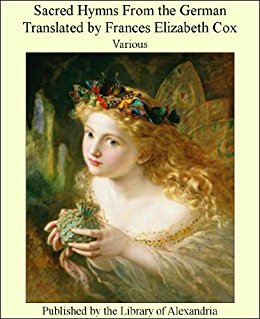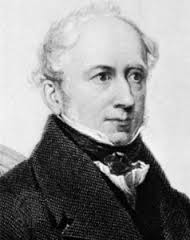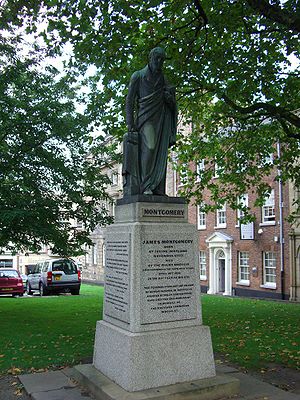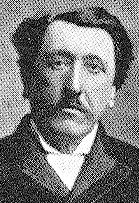“Again, the kingdom of heaven is like unto a net”
Mount Calvary Church
Baltimore, Maryland
A Roman Catholic Congregation
The Personal Ordinariate of the Chair of St. Peter
Trinity VII
Rev. Albert Scharbach, Celebrant
____________________
Hymns
Sing praise to God, who reigns above
Shepherd of souls, refresh and bless
Alleluia! sing to Jesus
_______________________
Sing praise to God, who reigns above is a translation by Frances Elizabeth Cox (1812—1897) of Sei Lob und Ehr’ dem höchsten Gut by Johann Jacob Schütz (1640-1690). He became a Pietist, and the hymn has the warm, affectionate tone of German Pietism. The line “casts each false idol from its throne” recalls the first hymn’s prayer for “a heart” that is “my dear Redeemer’s throne.” The tune, Mit Freuden zart, is beloved of the American Moravians. The tune name itself – “with tender joy” – expresses something of the character of the life and music of the Moravians.
1 Sing praise to God who reigns above,
The God of all creation,
The God of power, the God of love,
The God of our salvation;
With healing balm my soul He fills,
And every faithless murmur stills:
To God all praise and glory!2 What God’s almighty power hath made
His gracious mercy keepeth;
By morning glow or evening shade
His watchful eye ne’er sleepeth:
Within the kingdom of His might
Lo, all is just, and all is right:
To God all praise and glory!3 The angel host, O King of kings,
Thy praise forever telling,
In earth and sky all living things
Beneath Thy shadow dwelling,
Adore the wisdom that could span,
And power which formed creation’s plan;
To God all praise and glory!4 Thus all my gladsome way along
I sing aloud Thy praises,
That men may hear the grateful song
My voice unwearied raises:
Be joyful in the Lord, my heart:
Both soul and body bear your part:
To God all praise and glory!
5 O ye who name Christ’s holy name,Give God all praise and glory:
Give God all praise and glory:
All ye who own His power, proclaim
Aloud the wondrous story!
Cast each false idol from its throne,
The Lord is God, and He alone:
To God all praise and glory!
Here it is sung by First Presbyterian in Houston.
“Frances Elizabeth Cox, daughter of Mr. George V. Cox, born at Oxford, is well known as a successful translator of hymns from the German. Her translations were published as Sacred Hymns from the German, London, Pickering. The 1st edition, pub. 1841, contained 49 translations printed with the original text, together with biographical notes on the German authors. In the 2nd edition, 1864, Hymns from the German, London, Rivingtons, the translations were increased to 56, those of 1841 being revised, and with additional notes. The 56 translations were composed of 27 from the 1st ed. (22 being omitted) and 29 which were new. The best known of her translations are “Jesus lives! no longer [thy terrors] now” ; and ”Who are these like stars appearing ?” A few other translations and original hymns have been contributed by Miss Cox to the magazines; but they have not been gathered together into a volume.” (Hymnary)
“Johann Jacob Schütz was born Sept. 7, 1640, at Frankfurt am Main. After studying at Tübingen (where he became a licentiate in civil and canon law), he began to practice as an advocate in Frankfurt, and in later years with the title of Rath. He seems to have been a man of considerable legal learning as well as of deep piety. He was an intimate friend of P. J. Spener; and it was, in great measure, at his suggestion, that Spener began his famous Collegia Pietatis. After Spener left Frankfurt, in 1686, Schütz came under the influence of J. W. Petersen; and carrying out Petersen’s principles to their logical conclusion, he became a Separatist, and ceased to attend the Lutheran services or to communicate. He died at Frankfurt, May 22, 1690 (Koch, iv. 220; Blätter fur Hymnologie, Feb. 1883).” (Hymnary)
The tune MIT FREUDEN ZART has some similarities to the French chanson “Une pastourelle gentille” (published by Pierre Attaingnant in 1529) and to GENEVAN 138. The tune was published in the Bohemian Brethren hymnal Kirchengesänge (1566) with Vetter’s text “Mit Freuden zart su dieser Fahrt.”
Here is the choir at St. David’s Cathedral singing the hymn.
_______________________
Shepherd of souls, refresh and bless was written by the Moravian James Montgomery (1771—1854). As at the supper at Emmaus, Jesus feeds us. As the Good Shepherd, He lays down his life for His sheep, giving them His body and blood as their sustenance so that they may live forever. We know Jesus especially in the breaking of the bread, the action that symbolizes His death by which He sacrifices Himself for us and gives Himself to us.
The hymn is a tissue of Biblical references: we are God’s ”chosen,” the elect, his flock. The Eucharist is “manna in the wilderness” and “water from the rock,” the one that Moses struck and was a type of Christ (I Cor 10:4). The second stanza continues he metaphor of pilgrimage; on earth we are but strangers and travelers (Heb 11:13); the Eucharistic body of the Lord, like the manna in the desert, gives us strength to reach our true home, the Promised Land, where we will abide forever. Like the disciples at Emmaus, we recognize the Lord in the “breaking bread,” (Lk 24:35); we pray that he will not vanish, but spread his table in our hearts and sup with us (Rev 3:20).
Shepherd of souls, refresh and bless
Thy chosen pilgrim flock,
With manna in the wilderness,
With water from the rock.We would not live by bread alone,
But by that word of grace,
In strength of which we travel on
To our abiding-place.Be known to us in breaking bread,
But do not then depart,
Saviour, abide with us, and spread
Thy table in our heart.There sup with us in love divine;
Thy body and Thy blood,
That living bread, that heavenly wine,
Be our immortal food.
Here is Trinity Church singing it.
James Montgomery
James Montgomery (1771-1854) was born at Irvine in Ayrshire, on the western coast of Scotland. He was the son of John Montgomery, the only Moravian pastor in Scotland. The British Moravian church traces its roots back to the Moravian Missionary center in Hernnhut, Germany (Moravians were also known as Hernnhuters or the Bohemian Brethren).
John and his wife felt God’s call to be missionaries to the island of Barbados, in the West Indies. Tearfully, they placed six-year old James in a Moravian settlement at Gracehill in Central Ireland. That was to be the last time James would see them. They died within a year of each other after reaching Barbados.
Left with nothing, James was sent to be trained for the ministry at the Moravian School at Fulneck, near Leeds, England. It was here that he first started writing verse, at the age of 10. At Fulneck, secular studies were banned, but James nevertheless found means of borrowing and reading a good deal of poetry, including Burns’ “Lines To A Mountain Daisy.” He made ambitious plans to write epics of his own.
He suffered periods of deep depression as a result of losing his parents at such an early age. The Moravians who were trying to care for the orphan found him to be a dreamer, who “never had a sense of the hour.” Failing school at the age of 14, they “put him out to business” to a baker in Mirfield, just seven miles to the south. James left on his own and hired himself out to a storekeeper at Wath-upon-Dearne, another thirty miles to the south. Not finding much to his liking, James ran away again, wondering from place to place, trying to sell his freshly written verses. After further adventures, including an unsuccessful attempt to launch himself into a literary career in London, he moved to Sheffield in 1792 to become assistant to Joseph Gales, auctioneer, bookseller and printer of the Sheffield Register. In 1794, Gales left England to avoid political prosecution and Montgomery took the paper in hand, changing its name to the Sheffield Iris. Now owning the paper, he was able to publish his writings as he pleased.
These were times of political repression and he was twice imprisoned on charges of sedition. The first time was in 1795 for printing a poem celebrating the fall of the Bastille; the second in 1796 was for criticizing a magistrate for forcibly dispersing a political protest in Sheffield. His later account of this episode was published in 1840. Turning the experience to some profit, in 1797 he published a pamphlet of poems written during his captivity, as Prison Amusements. For some time, the Iris was the only newspaper in Sheffield; but beyond the ability to produce fairly creditable articles from week to week, Montgomery was devoid of the journalistic faculties which would have enabled him to take advantage of his position. Other newspapers arose to fill the place which his might have occupied and in 1825 he sold it on to a local bookseller, John Blackwell.
In his youth, he had strayed from the church, but at his own request he was readmitted into the Moravian congregation at Fulneck when forty-three years of age. He expressed his feelings at the time in the following lines
People of the living God,
I have sought the world around,
Paths of sin and sorrow trod,
Peace and comfort nowhere found.
Now to you my spirit turns–
Turns a fugitive unblest;
Brethren, where your altar burns,
O receive me into rest.
Thereafter he became an avid worker for missions and an active member of the Bible Society. He was interested in social issues and the missions. He attacked attacking the lottery (then, as now, a way of extracting money from the desperate poor) in Thoughts on Wheels (1817) and taking up the cause of the chimney sweeps’ apprentices in The Climbing Boys’ Soliloquies. His next major poem was Greenland (1819), a poem in five cantos of heroic couplets. This was prefaced by a description of the ancient Moravian church, its eighteenth-century revival and mission to Greenland in 1733.
In addition to Shepherd of souls (1940 Hymnal, #213), his hymns Angels from the realms of glory (1940 Hymnal, #28) and Hail to the Lord’s Anointed (1940 Hymnal, #545) are still sung.
In 1861, a monument designed by John Bell (1811–1895) was erected over his grave in the Sheffield cemetery at a cost of £1000, raised by public subscription on the initiative of the Sheffield Sunday School Union, of which he was among the founding members. On its granite pedestal is inscribed: “Here lies interred, beloved by all who knew him, the Christian poet, patriot, and philanthropist. Wherever poetry is read, or Christian hymns sung, in the English language, ‘he being dead, yet speaketh’ by the genius, piety and taste embodied in his writings.” There are also extracts from his poems “Prayer” and “The Grave”. After it fell into disrepair the statue was moved to the precinct of Sheffield Cathedral in 1971, where there is also a memorial window.
Elsewhere in Sheffield there are various streets named after Montgomery and a Grade II-listed drinking fountain on Broad Lane. The meeting hall of the Sunday Schools Union (now known as The Montgomery), in Surrey Street, was named in his honour in 1886; it houses a 420-seat theater which also bears his name. Elsewhere, Wath-upon-Dearne, flattered by being called “the queen of villages” in his work, has repaid the compliment by naming after him a community hall, a street and a square. His birthplace in Irvine was renamed ‘Montgomery House’ after he paid the town a return visit in 1841 but has since been demolished. Sic transit.
_____________________
Alleluia! sing to Jesus was written by William Chatterton Dix (1837—1898). Revelation 5:9 describes this eschatological scene of joy and glory: “And they sang a new song, saying: ‘You are worthy to take the scroll and to open its seals, because You were slain, and with Your blood You purchased for God members of every tribe and language and nation.’” Dix invites us to sing that new song of praise to our ascended Savior. This hymn is a declaration of Jesus’ victory over death and His continued presence among His people. By complex and interlocking allusions to Scripture, it presents a very high view of the Eucharist presence: Jesus is both “Priest and Victim” in this feast. Jesus, having triumphed over sin and death, “robed in flesh” has ascended above all the heavens, entering “within the veil” to the very throne of God. Dix sees in the Eucharist the fulfillment of Jesus’ promise to be with us evermore.
We sometimes forget that Jesus ever intercedes for us. The Mount Calvary Magazine in 1910 reminded us:
“The Incarnation is a permanent thing, it still exists. Our Lord still has His work to do in His glorified humanity; and that work is the perpetual intercession which He ever liveth to make for us. In order that he might carry on that work, it was necessary that His humanity should ascend into Heaven; and the way in which he now carries it on, is the unceasing presentation of His living and glorified humanity to the Father.”
As we walk down the aisle to approach the Eucharist, Jesus, who has been lifted up on the Cross and to Heaven, is drawing us to Himself, fulfilling His promise in the verse painted on the sanctuary arch.
1 Alleluia! sing to Jesus!
His the sceptre, His the throne;
Alleluia! His the triumph,
His the victory alone:
Hark! the songs of peaceful Sion
Thunder like a mighty flood;
Jesus, out of every nation
Hath redeemed us by His blood.2 Alleluia! not as orphans
Are we left in sorrow now;
Alleluia! He is near us,
Faith believes, nor questions how:
Though the cloud from sight received Him,
When the forty days were o’er:
Shall our hearts forget His promise,
“I am with you evermore”?3 Alleluia! Bread of Heaven,
Thou on earth our Food, our Stay!
Alleluia! here the sinful
Flee to thee from day to day:
Intercessor, Friend of sinners,
Earth’s Redeemer, plead for me,
Where the songs of all the sinless
Sweep across the crystal sea.4 Alleluia! King eternal,
Thee the Lord of lords we own;
Alleluia! born or Mary,
Earth Thy footstool, heaven Thy throne:
Thou within the veil hast entered,
Robed in flesh, our great High-Priest;
Thou on earth both Priest and Victim
In the Eucharistic feast.5 Alleluia! sing to Jesus!
His the sceptre, His the throne;
Alleluia! His the triumph,
His the victory alone;
Hark! the songs of holy Sion
Thunder like a mighty flood;
Jesus, out of every nation
Hath redeemed us by His blood.
Here is the hymn at St. Bartholomew’s.
William Chatterton Dix
William Chatterton Dix (14 June 1837 – 9 September 1898) was an English writer of hymns and carols. He was born in Bristol, the son of John Dix, a local surgeon, who wrote The Life of Chatterton the poet, a book of Pen Pictures of Popular English Preachers and other works. His father gave him his middle name in honour of Thomas Chatterton, a poet about whom he had written a biography. He was educated at the Grammar School, Bristol, for a mercantile career, and became manager of a maritime insurance company in Glasgow where he spent most of his life.
At the age of 29 he was struck with a near fatal illness and consequently suffered months confined to his bed. During this time he became severely depressed. Yet it is from this period that many of his hymns date.[4][5] He died at Cheddar, Somerset, England, and was buried at his parish church. (Wikipedia)




